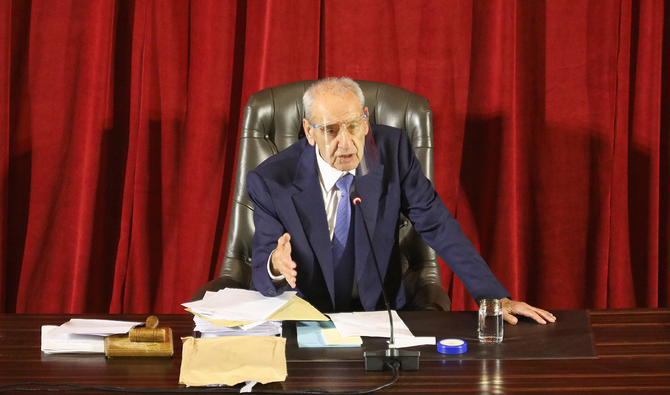
- ARAB NEWS
- 11 Jul 2025

Najia Houssari
BEIRUT: The security and social situation deteriorated on Wednesday in Tripoli, Lebanon’s second-largest city, where more than half of the population lives in poverty and the city has been left without electricity.
To make things worse, a child on oxygen support died after his machine stopped working and generators were turned off due to the acute shortage of diesel.
“People are angry. They took to the streets, some carrying weapons, and started closing down the shops by force,” an eyewitness told Arab News.
Tripoli’s mayor Riyad Yamaq said on television that “the situation in the city is out of control.”
The Lebanese Army patrolled the streets but stones and chairs were thrown at the soldiers, leading them to respond by firing their weapons into the air.
After calm was partially returned, the protesters moved to the Kadisha Electricity Company located in Tripoli’s Al-Bahsas area.
They stormed the building and forced its employees to supply some regions with electricity.
Mustafa Alloush, vice-president of the Future Movement, who is from Tripoli and practices medicine there, said: “What was expected has started from Tripoli and the social explosion has begun from this city. More will come if nobody intervenes immediately to halt the collapse.”
As the army regained control in Tripoli, the Lebanese Parliament held a session at the UNESCO Palace in Beirut. The area was heavily guarded. This infuriated people who took to social media to insult the Lebanese lawmakers and authorities they blamed for causing the collapse.
The MPs, who were sweating because the air conditioners were not functioning due to the power cut, approved the controversial ration card in the absence of a government capable of making such decisions. In response, the MPs of the Lebanese Forces parliamentary bloc left the hall to express their objection.
The card targets the neediest individuals without determining their final number. However, the number could reach up to 700,000 people, keeping in mind that the World Bank had estimated that more than 50 percent of the Lebanese people are now living in poverty.
During the session, the head of the Free Patriotic Movement (FPM) Gebran Bassil accused “security apparatus, MPs and politicians of being involved in the cross-border smuggling network and operations.”
MP Michel Moussa of the Development and Liberation bloc said the ration card “will be financed from some aid and existing loans that have not been used yet. We are keen not to finance it from the depositors’ funds that are frozen in the banks.”
The Syndicate of Hospitals in Lebanon said in a statement that “a number of hospitals have used the stock of diesel they had, while the rest have quantities that are not enough to cover the next 24 hours.”
In Beirut, a violent knife fight broke out in front of a gas station near Dar Al-Fatwa. The army intervened to stop it.
An explosion of a diesel tank in the town of Al-Khyara in West Bekaa killed a man in his thirties.
In other developments, the Federation of Syndicates of Banks Employees in Lebanon expressed its concern after people launched a call on social media to storm bank branches starting Thursday to protest their inability to access frozen deposits.
It consequently threatened to close the banks if any bank was attacked.
Taxi drivers refused to abide by the decisions of their syndicates as some raised the fare to LBP8,000 ($0.45) instead of LBP4,000 due to the increase in the fuel price that followed the partial lifting of subsidies.
Meanwhile, Bassil took to Twitter to relaunch the provocation campaign against the Prime Minister-designate Saad Hariri, calling on him to “decide whether he wants to form a government or step down.”